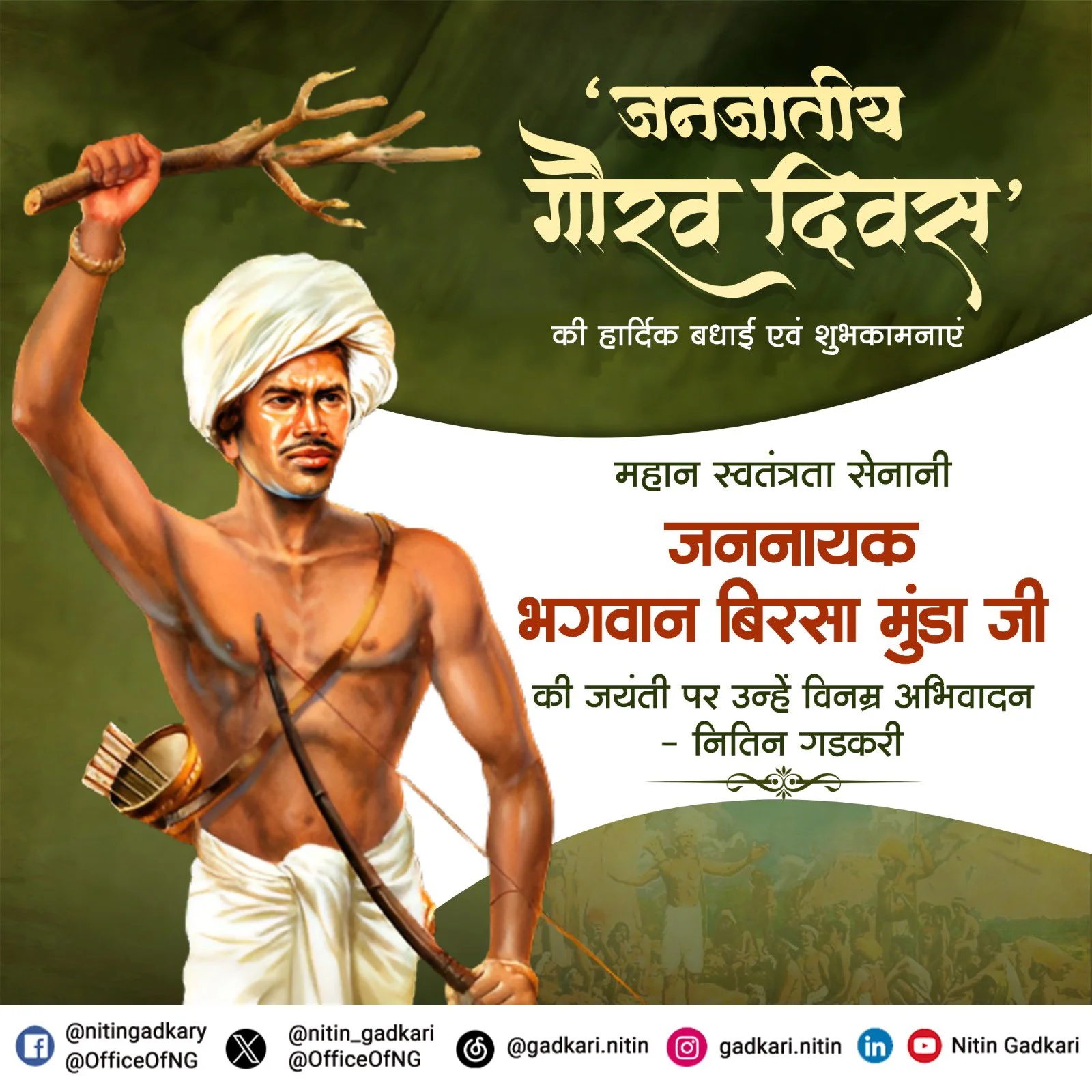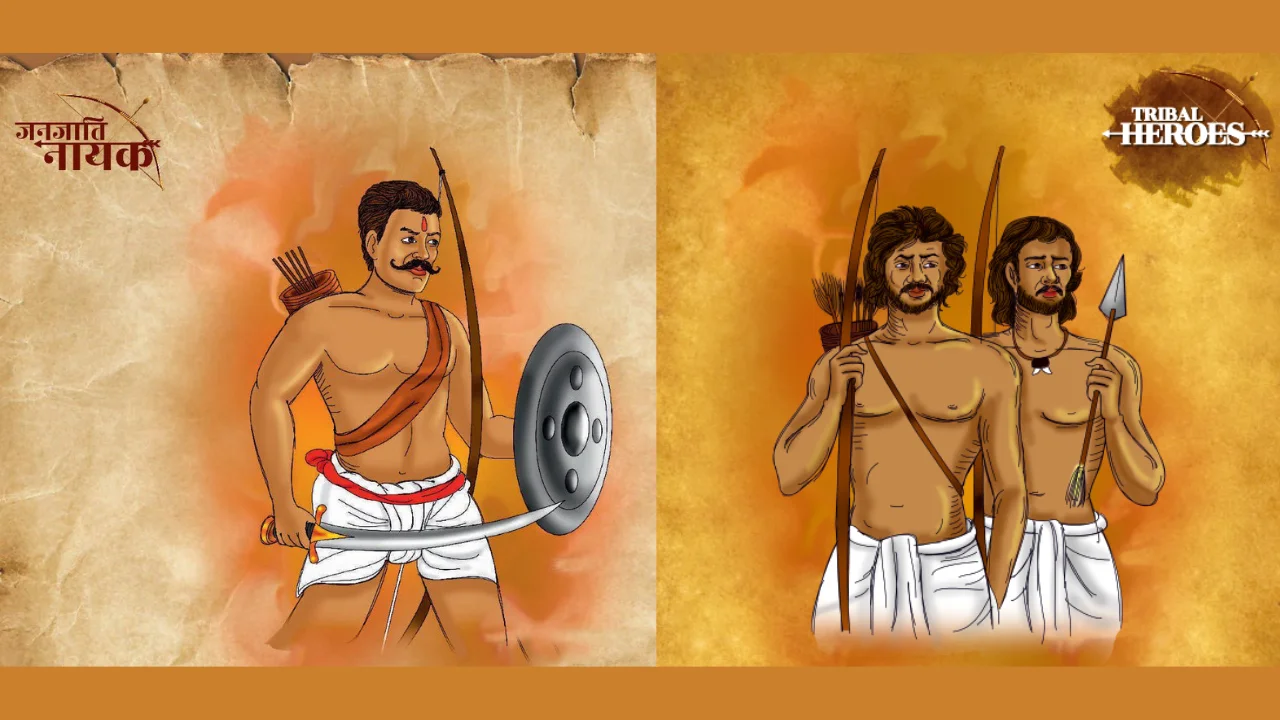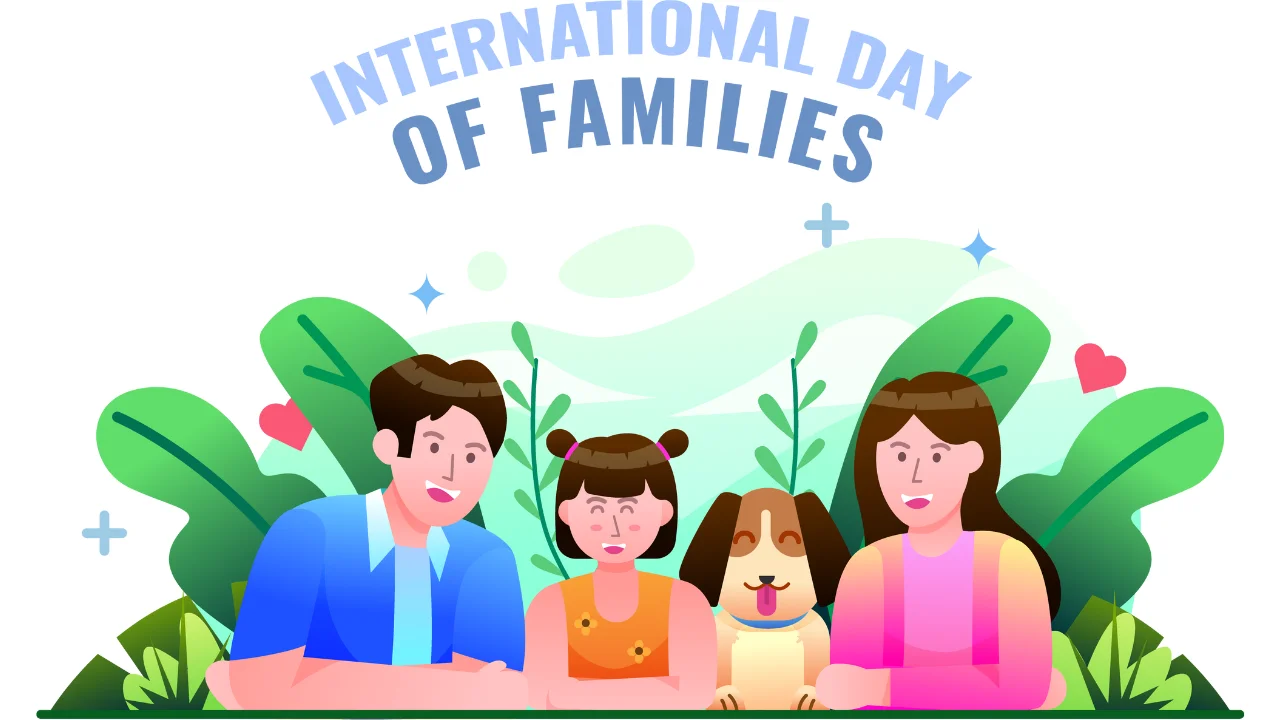Janjatiya Gaurav Diwas 2024
Janjatiya Gaurav Divas is celebrated on November 15 each year. The day commemorates the birth anniversary of Birsa Munda, a tribal leader who fought against British colonial rule in the late 19th century.
Janjatiya Gaurav Divas Theme 2024
As of today, the theme for the Janjatiya Gaurav Divas 2024 has not been announced yet.
History of Janjatiya Gaurav Divas
India’s struggle for freedom was significantly fortified by the resolute movements led by various tribal communities, including the Santhals, Tamars, Kols, Bhils, Khasis, and Mizos, among others. The courage and sacrifices demonstrated in the revolutionary movements by these tribal communities played a crucial role in inspiring Indians throughout the nation. Despite their immense contributions, the heroic efforts of these tribal leaders are not widely known among the general public.

In 2021, recognizing the need to enlighten future generations about the invaluable sacrifices made by these tribal heroes, the Government designated the 15th of November as Janjatiya Gaurav Divas. This date coincides with the birth anniversary of Sri Birsa Munda, revered as Bhagwan by tribal communities across the country. Birsa Munda fearlessly confronted the exploitative British colonial system, leading a movement against oppression and advocating for ‘Ulgulan’ or Revolution.
The declaration of Janjatiya Gaurav Divas serves to acknowledge the rich history and cultural heritage of tribal communities. This annual celebration aims to honor the tribals’ efforts in preserving cultural heritage and promoting Indian values of bravery, hospitality, and national pride.
Who was Birsa Munda
Birsa Munda (15 November 1875 – 9 June 1900) was a revered tribal leader and a folk hero who belonged to the Munda tribe in India. He emerged as a prominent figure in the late 19th century during British colonial rule, spearheading a tribal religious millenarian movement that swept across the Bengal Presidency (now Jharkhand). His charismatic leadership and unwavering resistance against British oppression made him a symbol of tribal pride and a beacon of hope for the oppressed Munda community.
Born into a poor Munda family in the village of Ulihatu, Birsa Munda received his early education in Salga under the guidance of his teacher Jaipal Nag. He later converted to Christianity to join the German Mission School, but soon disillusioned with the colonial agenda of converting tribals through education, he dropped out.
Birsa Munda’s experiences exposed him to the plight of his fellow Munda people, who were subjected to exploitation, land alienation, and oppression under British rule. This ignited a deep sense of injustice and a determination to fight for the rights of his community.
Munda’s Leadership
In 1894, Birsa Munda emerged as the leader of a tribal uprising known as the Munda Rebellion, also known as the ‘Ulgulan’, against British colonial rule. He galvanized the Munda people, urging them to reclaim their lands, uphold their traditions, and defy British authority. The rebellion gained momentum, spreading across the Munda belt in present-day Jharkhand.
Birsa Munda’s leadership and charismatic personality inspired the Munda people, who saw in him a messianic figure capable of leading them to freedom and restoring their lost glory. His message of self-reliance, resistance to oppression, and adherence to traditional Munda values resonated deeply with the community.
Against the British Rule
However, the British colonial authorities viewed Birsa Munda as a threat to their rule. In 1895, he was arrested and imprisoned for two years. Upon his release, he continued to advocate for tribal rights and rekindle the spirit of resistance among the Munda people.
In 1900, Birsa Munda was again arrested and incarcerated in the Ranchi Central Jail, where he succumbed to cholera at the young age of 25. Despite his untimely demise, his legacy as a tribal hero and symbol of resistance lived on, inspiring generations of Munda people to continue their struggle for justice and self-determination.
Birsa Munda’s contributions to the tribal movement and his unwavering fight against British colonialism earned him the revered title of ‘Dharti Aba’, meaning ‘Father of the Land’ among the Munda community. He remains an icon of tribal pride and a symbol of resistance against oppression and injustice.
Significance of Janjatiya Gaurav Diwas
- The day recognizes the immense contributions of tribal communities to India’s culture, heritage, and economy. Tribal communities have played a vital role in protecting the country’s forests, wildlife, and natural resources. They have also enriched India’s cultural diversity with their unique languages, customs, and traditions.
- Janjatiya Gaurav Diwas also aims to promote the welfare of tribal communities. The Indian government has implemented various schemes and programs to improve the lives of tribals in areas such as education, healthcare, and employment.
- The day also helps to raise awareness about the challenges faced by tribal communities, such as land displacement, poverty, and discrimination. It encourages masyarakat to work towards ensuring the rights and well-being of tribals.
15th November 2024 Special Day
November 15 marks Janjatiya Gaurav Divas, a day dedicated to honoring the rich cultural heritage of tribal communities. This special day commemorates the birth anniversary of Birsa Munda, a revered tribal leader renowned for his resistance against British colonial rule during the late 19th century. Janjatiya Gaurav Divas serves as a poignant reminder of the indomitable spirit and contributions of tribal communities in shaping the cultural mosaic of our nation.
- 10 May 2024 Current Affairs in English
- World Migratory Bird Day 2024, Theme, History & Significance
- National Technology Day 2024, Its History, Facts & Significance
- Happy Mother’s Day 2024 (12th May), Theme, History, Significance
- International Nurses Day 2024, Its History & Significance
- International Day of Families 2024 (15th May), Theme & History

Oliveboard Live Courses & Mock Test Series
- Download IFSCA Grade A PYQs
- Download SEBI Grade A PYQs
- Download SEBI Grade A 300+ MCQs
- Download 500+ Free Ebooks for Govt. Exams Preparations
- Attempt Free SSC CGL Mock Test 2024
- Attempt Free IBPS Mock Test 2024
- Attempt Free SSC CHSL Mock Test 2024
- Download Oliveboard App
- Follow Us on Google News for Latest Update
- Join Telegram Group for Latest Govt Jobs Update







